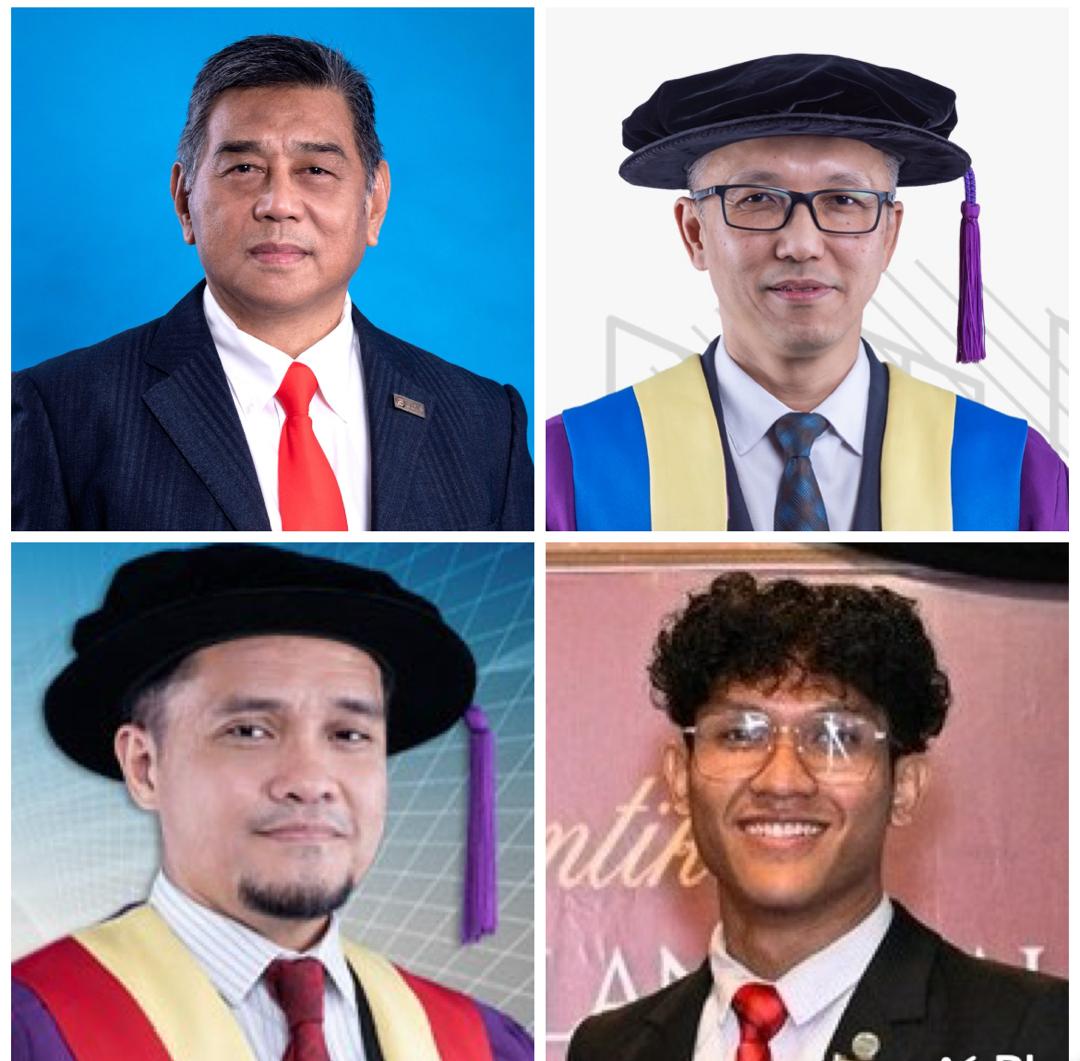
The Universiti Malaysia Sabah (UMS) community has warmly welcomed the seven key focuses and ten transformation agendas of the Ministry of Higher Education (KPT), which set the direction for the nation's higher education sector this year, as announced by the Minister of Higher Education, Dato' Seri Diraja Dr. Zambry Abd Kadir, in his recent New Year address.
UMS Vice-Chancellor, Prof. Datuk Dr. Kasim Hj. Mansor, stated that the 2025 New Year address by Zambry reflects his attentiveness to the voices of academics who seek clear and fair policies on issues such as lecturer promotions and the need to establish an evaluation mechanism for seconded or loaned officers.
“These issues are critical to ensuring the inclusive and fair career progression of academic staff.
“UMS fully supports the Higher Education Minister’s call, in line with our efforts to empower the university community as the heartbeat of KPT’s vision, ‘The Brain of the Nation.’
“The University-Industry-Community collaboration suggested by the ministry will also be a primary agenda in our higher education planning,” he said.
Prof. Kasim’s statement was echoed by the Dean of the Centre for the Promotion of Knowledge and Language Learning (PPIB), Assoc. Prof. Dr. Lai Yew Meng, who emphasized that KPT's direction this year is a well-structured, holistic, inclusive, balanced, and visionary strategic plan.
“The key focus areas and transformation agenda reflect the ‘3C’ principle – Change, Continuity, and Consolidation – which aims to drive and strengthen the higher education agenda in addressing the increasingly VUCA (volatile, uncertain, complex, ambiguous) world.
“As the Dean of PPIB, I am particularly interested in Program 3 under Focus 5: Governance and Leadership, which aims to enhance General Studies (MPU) subjects offered at PPIB.
“This agenda aligns with the goals and aspirations of the National Education Philosophy and reflects KPT's commitment to ensuring that higher education remains anchored to its ‘True North,’ meaning its fundamental purpose in sustaining the human element amidst rapid global transformations,” he added.
Meanwhile, the Dean of the Faculty of Computing and Informatics (FKI), Assoc. Prof. Dr. Mohd Hanafi Ahmad Hijazi, pointed out the significant emphasis on digital technology mastery, particularly artificial intelligence (AI), highlighted in two of the seven focus areas.
“Developing talent proficient and ethical in AI, both as creators and users, is critical to keeping up with the rapid advancements and global competition in AI adoption.
“The strategic direction also focuses on AI application development in higher education, not only in teaching and learning but also in operations.
“This initiative positions KPT as a leader in AI adoption within government agencies, leveraging the ministry’s extensive expertise,” he noted.
UMS Registrar, Luqman Ridha Anwar, commended the address for providing a clear roadmap to further elevate the excellence of higher education institutions. Similarly, the Dean of the Faculty of Social Sciences and Humanities (FSSK), Prof. Dr. Asmady Idris, viewed the minister’s message as perfectly aligned with national educational aspirations and an essential guide to navigating global challenges.
Senior Lecturer at FSSK’s Communication Program, Dr. Haryati Abdul Karim, also responded positively to the address.
“I am pleased that issues concerning lecturers, such as workload and promotions, were highlighted in the minister’s speech.
“This shows that the minister is receptive and attentive to the concerns of academic staff,” said Haryati.
UMS Student Representative Council (MPP) President, Yusuf Naim Muhammad Idris Lutfi, echoed the sentiment, expressing confidence that the higher education roadmap will develop holistic human capital, particularly at UMS.
“As students in the post-normal era, it is crucial to cultivate well-rounded and balanced human capital.
“Therefore, MPP UMS urges all students to support the government’s vision in fostering a credible, industry-competitive, and lifelong learning society.
“Student support and active participation are key to realizing this aspiration for a brighter future for the nation,” said Yusuf.


